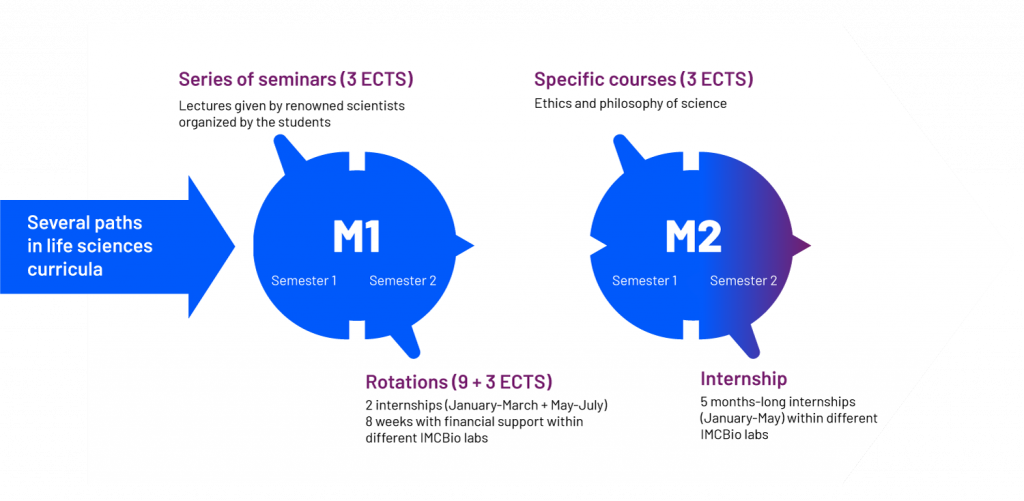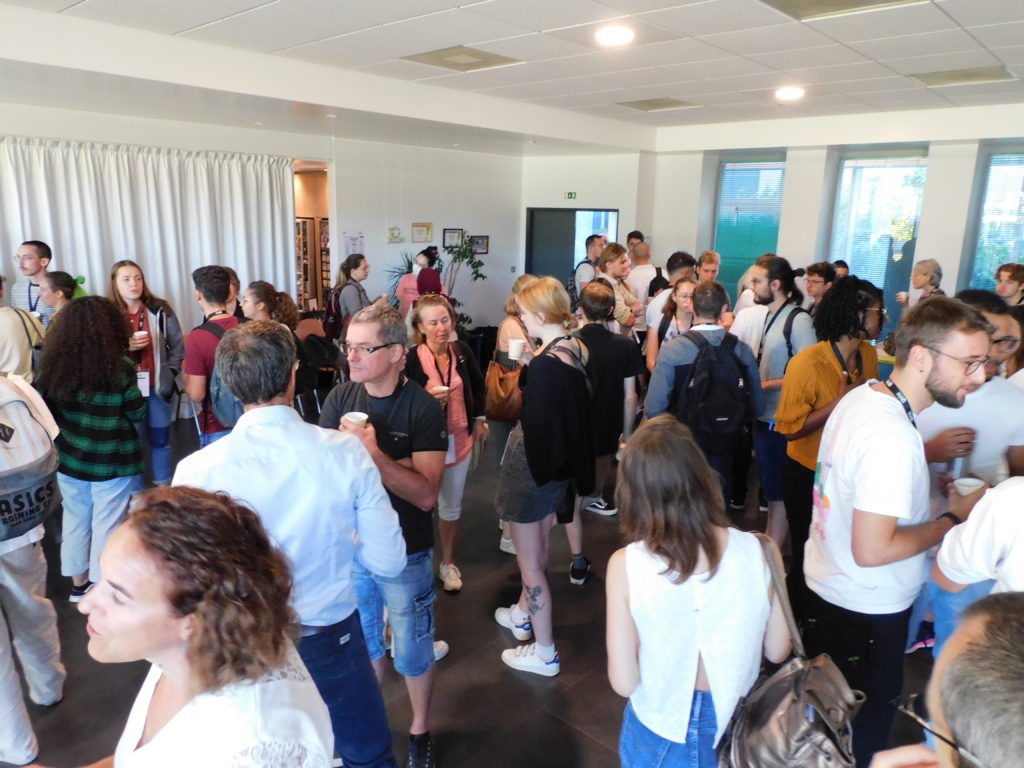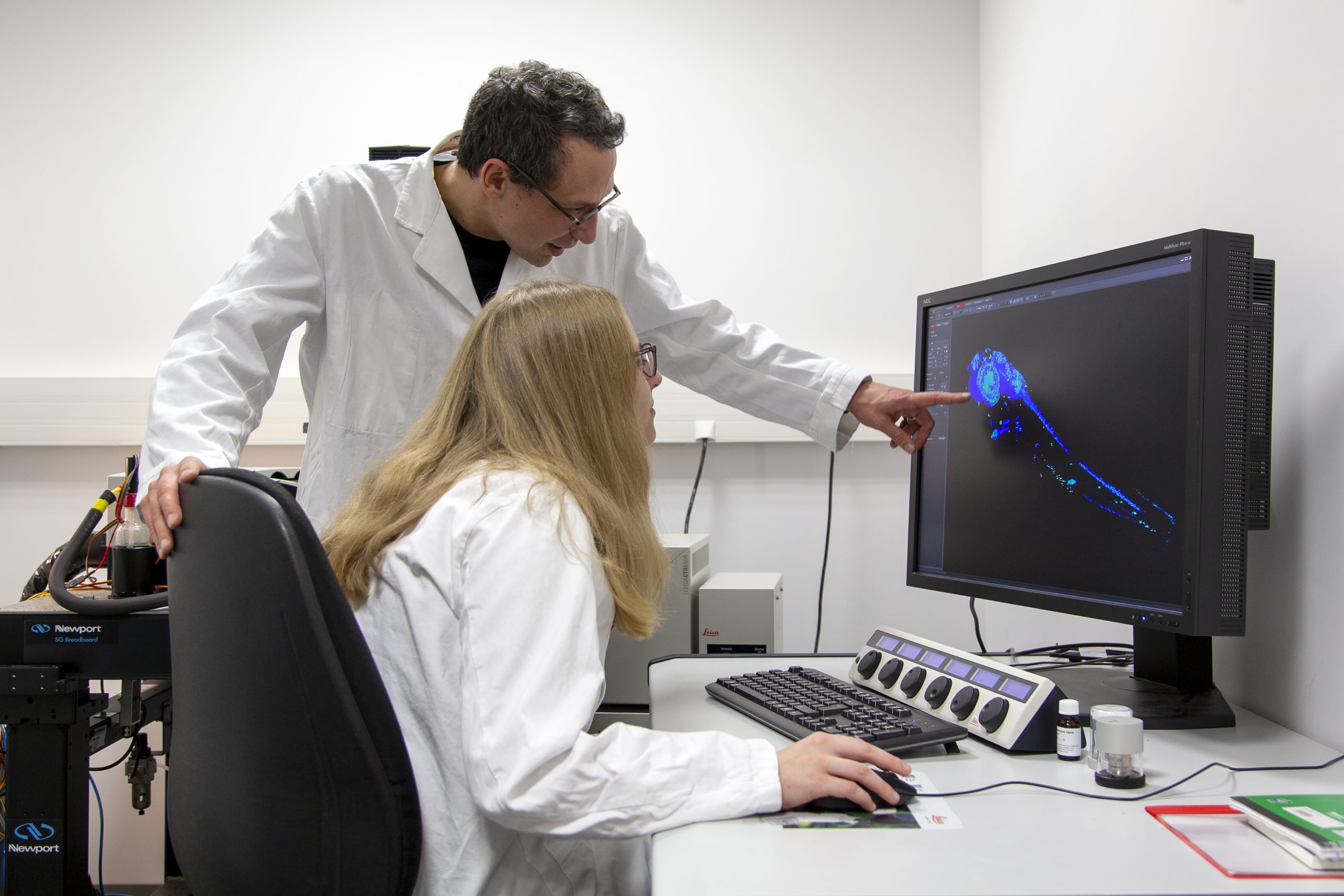Master level
During the lastest decades, research in molecular and cellular biology has undergone a rapid evolution. Integrative and large-scale studies can now be performed to decipher the complexity of biology. Based on a multidisciplinary campus at the leading edge of research in Life sciences, the IMCBio graduate school provides a unique environment for interdisciplinary training in Biology.
To provide to you, master student, a strong knowledge in modern biology, our unique IMCBio Master Program proposes specific training units in english to enhance the high-level training units proposed by the Life Sciences faculty from the University of Strasbourg.

By choosing this program you will get:
Those elements are essential now-a-days for a competitive career in biology research.
The major asset of the IMCBio program relies on its dynamic evolution and adaptation to the needs of the students, so do not hesitate anymore and join us!
IMCBio associated Master specialties
To foster interdisciplinarity we work together with the following specialities from the Life Science Faculty:
- Biology and molecular genetics (Biologie et génétique moléculaire)
- Immunology and Inflammation (Immunologie et inflammation)
- Integrative Structural Biology and Bioinformatics (Biologie Structurale Intégrative et Bioinformatrique)
- Microbiology (Microbiologie)
- Molecular genetics of development and stem cells (Génétique moléculaire du développement et des cellules souches)
- Plant Molecular Biology and Biotechnology (Plantes, biologie moléculaire et biotechnologies) and
- Virology (Virologie)
Here’s some highlights of the program:
On the first day of the Master program, you will meet your IMCBio fellows and staff, learn about Strasbourg, and find out about the laboratories of excellence where you can do your rotations in a live event – the IMCBio Master Day.

In November, you’ll be able to participate in the IMCBio Master Symposium gathering more than 16 speakers in eight different disciplines! Here’s how it went last year.
We can’t emphasize enough: it’s central to IMCBio to promote interdisciplinarity. Therefore, in the first Master year, we promote that your research internships take place in different sites, either in Strasbourg (Research Clusters MitoCross, NetRNA and HepSYS) or in Illkirch (Research Cluster INRT). An internship in an industry setting or in another country is also possible.
For an overview of the research labs go HERE.
Please note that by following the Master program, entrance to the IMCBio PhD program is not automatic. IMCBio masters and external applicants have to apply to our PhD Call, to be selected on merit.
Find here the links to some of the IMCBio seminars:

PhD level
In the heart of Europe, the IMCBio graduate school PhD program is perfect for those passionate by life sciences and biomedical research. The complementarities and synergies between the different research groups of our graduate school constitute an attractive training community for you as a future IMCBio PhD student. It is the place for eager and motivated minds to develop their ideas.
The IMCBio PhD Program is a three year – intensive training program developed to train the next generation of scientists. During these three years, our IMCBio PhD students:
Here you can see and hear 4-min short talks from two of our students doing an Inter-LabEx PhD (co-directed by two different labs):
& two PhD students testify on their IMCBio experience in two short clips:
By choosing the IMCBio PhD program you will:
To benefit from this unique opportunity to get a broad overview of every aspects of gene expression and regulation covering from nuclear organization and epigenetics to post-transcriptional and post-translational events as well as crosstalks between the nucleus, the cytoplasm and organelles in eukaryotes in the context of cell-to-cell communication, development and diseases, then come and join us!
To apply to our PhD program please follow this link.
For information on the courses please follow this link.

